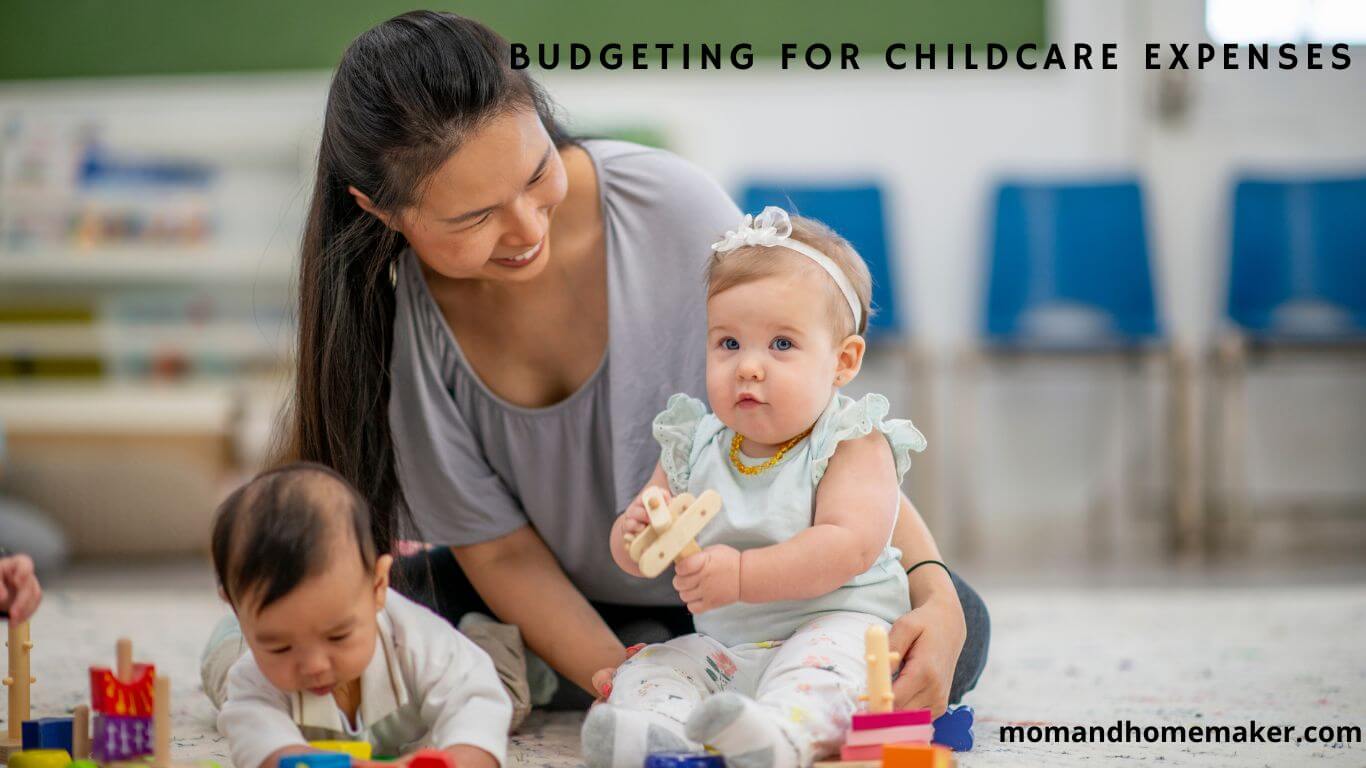For newlyweds, the merging of two lives also means the merging of two financial worlds. Establishing effective budgeting techniques is crucial for setting the stage for a financially stable and fulfilling life together.
In this article, we will delve into the realm of effective budgeting techniques tailored for newlyweds, offering valuable insights and practical advice to help you navigate this important aspect of married life.
These techniques will not only help you navigate any financial challenges that may arise but also enable you to build a strong financial partnership that will thrive for years to come.
Get ready to take control of your finances and discover the secrets to financial harmony.

Setting Financial Goals
To effectively manage your finances as newlyweds, it’s important to set clear and achievable financial goals. Setting specific objectives will help you work together as a team and build a solid foundation for your future.
Start by discussing your individual goals and aspirations, and then combine them to create shared goals. This will ensure that both partners feel a sense of belonging and ownership in the financial planning process. Remember to set realistic and attainable goals to avoid frustration and disappointment.
Once you have established your financial goals, it’s time to create an effective budgeting strategy. Begin by tracking your income and expenses to get a clear understanding of your financial situation. This will help you identify areas where you can cut expenses and save money.
Set a budget that aligns with your goals and allocate funds for savings, debt repayment, and discretionary spending. Regularly review and adjust your budget as needed to stay on track.
Tracking Income and Expenses
To effectively manage your variable expenses and analyze your spending patterns, it’s important to track your income and expenses as a newlywed couple. This will give you a clear understanding of your financial situation and allow you to make informed decisions about your financial priorities.
To track your income and expenses, you can create a budget spreadsheet or use a budgeting app. This will help you categorize your expenses and monitor your spending habits.
For example, you can have categories like Housing, Transportation, Groceries, Entertainment, and Miscellaneous. Set a monthly budget for each category and track your actual spending.
By tracking your income and expenses in this way, you’ll easily see if you’re overspending in certain categories and can make adjustments as needed. It will also allow you to track your progress towards your financial goals and make any necessary changes to stay on track.
Creating a Monthly Budget
To create a monthly budget, follow these simple steps.
First, gather all your financial information, including your income, expenses, and debts. Next, categorize your expenses into fixed expenses (like rent or mortgage payments) and variable expenses (such as groceries or entertainment).
Then, create a realistic budget by allocating a certain amount for each category, making sure your total expenses don’t exceed your income.
Don’t forget to budget for irregular income too. If you or your spouse have fluctuating income, plan for months when you earn less by setting aside a portion of your income during high-earning months. Consider setting up an emergency fund for unexpected expenses.
Lastly, regularly track your expenses and adjust your budget as needed.
Minimizing Unnecessary Expenses
Cutting back on unnecessary expenses is crucial for newlyweds to maintain a healthy financial situation. As a newly married couple, it can be challenging to adjust to shared financial responsibilities. However, by making a few financial sacrifices and cutting back on unnecessary expenses, you can create a solid foundation for your future together.
One effective strategy for cutting back on expenses is to identify and prioritize your needs versus wants. Sit down together and make a list of essential expenses such as rent or mortgage payments, utilities, groceries, and transportation. Once you have a clear understanding of your needs, you can then allocate a specific amount of your budget to these expenses.
Take a closer look at your discretionary spending. Evaluate your spending habits and identify areas where you can make cuts without sacrificing too much. For example, you might consider reducing eating out or entertainment expenses. Instead, opt for cooking at home or finding free or low-cost activities to enjoy together.
Another way to minimize unnecessary expenses is to negotiate bills and shop around for better deals. Take the time to review your monthly bills, such as cable, internet, and insurance.
Contact your service providers to see if there are any promotions or discounts available. Compare prices on essential items before purchasing to ensure you’re getting the best deal.
Saving for Emergencies
Saving for emergencies should be a top priority for newlyweds. Life can be unpredictable, and having an emergency fund can provide a sense of security during challenging times. Here are a few strategies to help you get started:
- Build an Emergency Fund: Set a monthly savings goal and automate contributions to your emergency fund. This will provide a safety net for unexpected expenses.
- Prioritize Saving: Make saving for emergencies a top financial priority. Cut back on unnecessary expenses to free up funds for your emergency fund. This will ensure financial stability and peace of mind.
- Create a Budget: Create a budget that includes a specific category for your emergency fund. Allocate a certain percentage of your income towards it each month. This will help you track your income and expenses effectively.
- Avoid Debt: Minimize reliance on credit cards and avoid taking on unnecessary debt. Prioritize paying off existing debts to prevent financial strain during emergencies.
- Continual Review: Regularly review and adjust your emergency savings plan based on your changing financial situation and needs. This will ensure that your emergency fund remains adequate.
Paying off Debt Strategically
Once you have a solid emergency fund, the next step in securing your financial future as newlyweds is to strategically pay off any existing debt. It’s important to tackle your debt head-on and develop a plan that works for both of you.
One strategy for increasing income is to explore opportunities for side hustles or part-time jobs. This can provide extra money that you can put towards paying off your debt faster. Additionally, you can consider selling unused items or cutting certain expenses to free up more cash.
Another important aspect of paying off debt strategically is managing your credit cards effectively. Start by creating a budget and tracking your expenses to ensure you’re living within your means. Avoid using your credit cards for unnecessary purchases and focus on paying off the balances each month.
If you have multiple credit cards with balances, consider transferring the debt to a card with a lower interest rate. This can save you money on interest payments and help you pay off the debt more quickly.
Establishing a Joint Bank Account
Consider opening a joint bank account to simplify your finances as a newlywed couple. Combining your finances into one account has several benefits.
It promotes transparency between you and your spouse. With a joint bank account, both partners have full visibility into the household’s financial situation, fostering open communication and trust.
It offers convenience. Having all your income, expenses, and savings in one place makes it easier to track and manage your finances together. No more juggling multiple accounts or complicated budgeting.
Third, a joint account encourages shared responsibility. By pooling your resources, you both take equal ownership and work together towards your financial goals.
Before opening a joint account, discuss your financial goals and spending habits with your partner to ensure you’re aligned. Establish clear guidelines on how the account will be managed and what expenses will be covered. You may also want to maintain individual accounts for personal expenses or discretionary spending to maintain some financial autonomy.
Opening a joint bank account can be a smart move for newlyweds, simplifying your financial management and strengthening your partnership. Remember to communicate openly, establish clear guidelines, and consider your individual needs to make the most of your joint finances.
Negotiating Bills and Expenses
As a newlywed couple, you can save money and reduce financial stress by negotiating your bills and expenses. It’s important to work together to find ways to lower your monthly expenses, such as negotiating your rent and reducing your utility bills.
One effective way to negotiate your rent is by researching the rental market in your area and finding out what similar properties are renting for. Armed with this information, you can approach your landlord and have a polite conversation about the possibility of reducing your rent. You may be surprised at the positive response you receive.
Another way to save money is by reducing your utility bills. Start by analyzing your energy usage and identifying areas where you can cut back. For example, you can lower your thermostat during the winter months or invest in energy-efficient appliances. Consider shopping around for better deals on your internet, cable, and phone plans.
Implementing a Cash-Only Policy
To simplify your spending and improve your financial discipline as a newlywed couple, consider implementing a cash-only policy for your day-to-day expenses. By using cash envelopes, you can allocate a specific amount of money for different categories like groceries, dining out, and entertainment. This clear visual representation of your budget will help you stay on track and avoid overspending.
Implementing a cash-only policy brings financial accountability to your marriage. Here’s how it works:
- Create cash envelopes: Assign different envelopes for each spending category and label them accordingly. Allocate a specific amount of cash for each envelope.
- Withdraw cash: Take out the necessary amount of money for the week or month and distribute it among the corresponding envelopes.
- Use cash for expenses: Whenever you need to make a purchase, use the cash from the appropriate envelope. Once the money is gone from a particular envelope, it serves as a reminder that you’ve reached your spending limit for that category.
Using Budgeting Apps and Tools
Enhance your budgeting efforts as a newlywed couple by using budgeting apps and tools. These digital resources provide you with the necessary tools and techniques to effectively manage your finances and achieve your financial goals. Budgeting apps and tools offer a convenient and user-friendly platform for tracking expenses, creating budgets, and monitoring your financial progress.
By incorporating budgeting apps and tools into your routine, you can easily keep track of your income and expenses, identify areas of overspending, and make necessary adjustments to stay on track with your budget. These apps often provide visual representations of your spending patterns and offer features like expense categorization and automatic bill reminders.
Here are some popular budgeting apps and tools to assist you in your financial management journey:
- Mint: This app tracks expenses, sets budgets, and offers financial tips.
- You Need a Budget (YNAB): YNAB helps you create a budget and provides support and education.
- PocketGuard: Syncing with your bank accounts, PocketGuard tracks spending and savings.
- Wally: Wally offers expense tracking and budgeting capabilities.
With these budgeting apps and tools, you can streamline your budgeting process and gain a sense of financial empowerment and security. Start utilizing these resources today to take control of your finances and build a solid foundation for your future as a newlywed couple.
Planning for Future Expenses
As you continue your journey towards financial management as a newlywed couple, it’s important to start planning for future expenses. Planning for the future ensures that you have a clear vision of your financial goals and are prepared for any unexpected expenses that may arise.
Here are some key steps to help you plan for future expenses:
- Identify your future investment goals: Determine what you want to achieve financially in the long run. This could include buying a house, starting a family, or retiring comfortably. Having clear goals will guide your financial decisions.
- Create a long-term financial plan: Develop a comprehensive plan that outlines how you’ll achieve your future investment goals. This plan should include budgeting, saving, and investing strategies that align with your goals.
- Prioritize saving for the future: Set aside a portion of your income specifically for future expenses. You may consider opening a separate savings account or investment portfolio to keep your savings secure and growing.
Saving for Retirement
Start planning for your retirement now to ensure a secure and comfortable future. Retirement planning is crucial, and it’s never too early to start. By implementing effective investment strategies, you can build a substantial nest egg that will support you during your golden years.
Here are three investment strategies to consider when saving for retirement:
- 401(k) Plans: These are workplace retirement plans that allow you to contribute a portion of your salary on a tax-deferred basis. One of the benefits of 401(k) plans is that employers often provide matching contributions, which can help grow your savings even faster. Additionally, these plans offer tax advantages and the convenience of automatic payroll deductions.
- Individual Retirement Accounts (IRAs): IRAs are personal retirement accounts that offer tax advantages and a wide range of investment options. With IRAs, you have the flexibility to choose investment options that align with your goals and risk tolerance. Traditional IRAs allow for tax-deductible contributions, while Roth IRAs offer tax-free growth, providing you with even more options to save for retirement.
- Diversified Portfolio: Investing in a mix of stocks, bonds, and other assets is a key strategy to spread the risk and maximize returns. By diversifying your portfolio, you have the potential for higher returns while protecting yourself against market volatility. This strategy allows you to grow your wealth over time and ensure a more secure retirement.
Communicating Openly About Finances
To have a healthy financial partnership, newlyweds need to communicate openly and honestly about their finances. This will help you navigate the complexities of managing money together.
Here are some strategies to promote open communication and financial transparency in your relationship:
- Schedule regular money talks: Make time for dedicated discussions about your finances, whether it’s weekly or monthly meetings. This will help you stay on track with your financial goals, address any concerns, and make joint decisions about your money.
- Share financial information: Be open and transparent about your income, expenses, debts, and savings. Sharing this information will give both of you a clear understanding of your financial situation and enable you to make informed decisions together.
- Set common financial goals: Talk about your individual financial goals and work towards creating shared goals as a couple. This will help you align your priorities, avoid conflicts, and stay motivated to achieve your aspirations together.
Prioritizing Financial Education
To ensure long-term success in your financial partnership, it’s important to prioritize your financial education. As newlyweds, you’re embarking on a journey together, and your financial well-being plays a crucial role in building a strong foundation for your future.
Financial literacy involves understanding various financial concepts and effectively applying them in managing your money. It includes knowledge about budgeting, saving, debt management, and investment strategies.
One important aspect of financial education is learning about different investment strategies that can help you grow your wealth over time. It’s essential to educate yourselves on topics such as stocks, bonds, mutual funds, and real estate, as these provide opportunities for wealth accumulation. Understanding the risks and rewards associated with different investment options will enable you to make wise investment decisions.
Seeking Professional Financial Advice
Consider consulting with a professional financial advisor to get expert guidance on managing your finances as newlyweds. Seeking the help of a financial planner can give you valuable insights and strategies to navigate your financial journey together.
Here are some reasons why seeking professional advice can be beneficial:
- Objective Perspective: A financial planner can offer an unbiased and impartial viewpoint on your financial situation. They can help you identify areas where you may be overspending or missing out on potential savings.
- Tailored Recommendations: A financial planner will work closely with you to understand your goals, values, and financial priorities. They can then create a personalized plan that aligns with your unique circumstances.
- Access to Online Resources: Many financial planners provide online tools and resources to help you track your spending, set goals, and monitor your progress. These resources can simplify the budgeting process and make it easier for you to stay on top of your financial goals.
Conclusion
Congratulations on starting your new journey as a married couple. By using these effective budgeting techniques, you’ll be well on your way to financial success.
Communication and open discussions about money are crucial, just like a beautiful dance. Make sure to keep track of your income and expenses, prioritize your goals, and seek professional advice when needed.
Building a solid financial foundation together will ensure a financially secure future.













